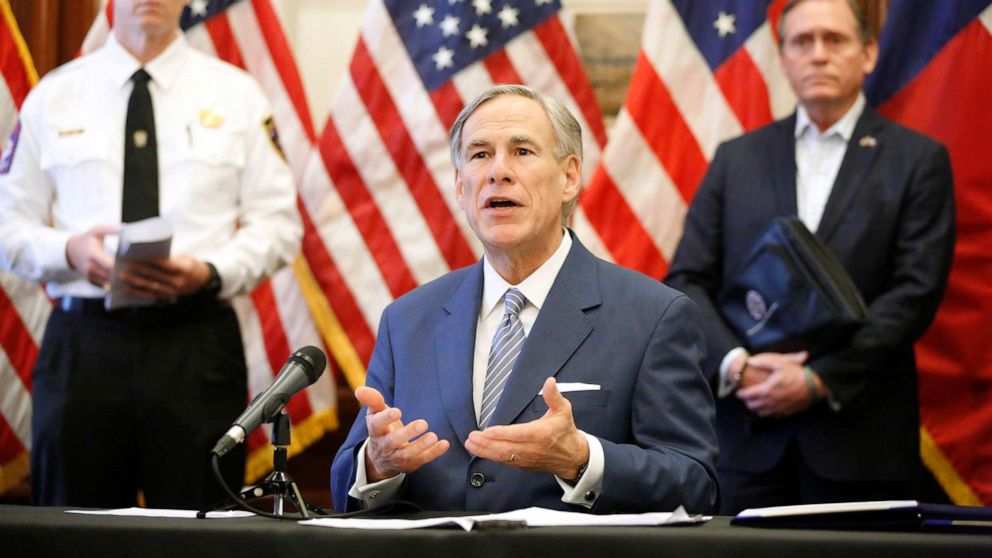Violence at work
A team of criminal court judges, defense attorney associations and the local chapter of the NAACP have teamed up to sue the Texas governor for issuing an executive order banning accused violent offenders from seeking bail to avoid possibly contracting COVID-19.
With the outbreak infecting more than 1 million globally, including more than 10,000 in Texas, health experts have issued guidelines such as social distancing and self-quarantining that are especially difficult to adhere to while incarcerated.
“Because social distancing is nearly impossible in detention, and people in jails are disproportionately at risk for serious complications, the risk of outbreak is especially dangerous for detention facilities,” according to documents filed on Wednesday in the District Court of Travis County.
“As a result, local stakeholders in counties across Texas have been working together to reduce their jail populations — which experts instruct is urgently needed — in ways consistent with both state law and the safety of the community,” according to the petition.
Gov. Greg Abbott on March 29 signed an executive order that prevents “any county judge or mayor of a municipality, or any emergency management director, from releasing persons under any circumstances” under the conditions of a personal bond or an electronic monitoring system if “previously convicted of a crime that involves physical violence or the threat of physical violence, or any person currently arrested for such a crime that is supported by probable cause.”
Bonds are a form of insurance used to incentivize persons accused of crimes to show up for court dates if they’re released in the meantime. Judges can set conditions — curfews, travel restrictions, the wearing of GPS-linked monitoring devices — which, if violated, results in the assets put forward by the accused individual being revoked, and that person is locked up until the trial begins.
The state’s Criminal Defense Lawyers Association, Capital Area Private Defender Service, Austin Criminal Defense Lawyers Association, Harris County Criminal Court at Law Judges and NAACP Texas’s petition seeks to temporarily stop Abbott’s executive order that “frustrates these efforts” to adhere to health experts’ advice by reducing the jail population “and unlawfully undercuts the authority of judges and the legislature.”
Abbott’s order “immediately caused turmoil and confusion in the courts by purporting to strip judges and magistrates of their authority to decide individual cases,” according to the petition, which requests to temporarily suspend the order until a hearing can be held in about two weeks. “Judges are now caught between fulfilling their obligations to decide bail in individual cases as prescribed by the Constitution and Legislature, or obeying an Executive Order.”
The group is also calling for the court to deem Abbott’s order unconstitutional, according to the petition.
“Today I issued an Executive Order preventing the release of dangerous criminals from prisons & jails. We want to prevent the spread of #COVID19 among prison staff & inmates. But, releasing dangerous criminals in the streets is not the solution,” Abbott said in a social media post on March 29.
Attorney General Ken Paxton, named as a defendant along with Abbott, supports the governor’s order and filed a motion to prevent the release of 4,000 violent felony offenders after a murder suspect was released on bond over fear of contracting COVID-19.
“Protecting Texans is one of my highest priorities. It is vital that we maintain the integrity of our criminal justice system and continue to enforce state law during this pandemic,” Paxton said in a statement March 29. “The release of thousands of arrestees justly held for felony crimes would directly endanger the public, and my office will not stand for any action that threatens the health and safety of law-abiding citizens.”
Abbott didn’t immediately respond to requests for comment from ABC News. Attempts to reach Paxton’s office were unsuccessful.
Prior to Abbott’s order, law enforcement jurisdictions across the state had made efforts to release accused or convicted non-violent offenders.
In Travis County, judges increased the amount of detainees to get released on personal bond in order to decrease the jail population, according to the Austin American-Statesman.
In Bexar County, the sheriff’s office took a proactive measure by announcing a plan that included minimizing non-violent offenses arrests, reducing the jail population by coordinating with the courts to maximize use of GPS releases for sentenced prisoners and suspending the Work Release Program until further notice.
On April 1, a Harris County judge signed an order to release up to 1,000 non-violent inmates awaiting trial on felony charges, without prior convictions for violent crimes, according to ABC Houston station KTRK.
Texas is home to the largest non-federal correctional system in the country, with 104 facilities and approximately 140,000 inmates, said Jeremy Desel, director of communications for the Texas Department of Criminal Justice.
On Tuesday, the state’s first inmate diagnosed with COVID-19 died while in medical isolation at a community hospital.
Bartolo Infante, 72, was serving a 20- to 60-year sentence in the Barry B. Telford Unit and suffered from “a number of pre-existing medical conditions” before he tested positive on April 3, according to TDCJ. Infante’s cause of death is under investigation.
Seven other inmates from Infante’s unit are in medical isolation, and the entire facility has been placed on full medical restriction.
As of Wednesday evening, 47 inmates and 56 jail employees had tested positive for COVID-19.
What to know about Coronavirus:
